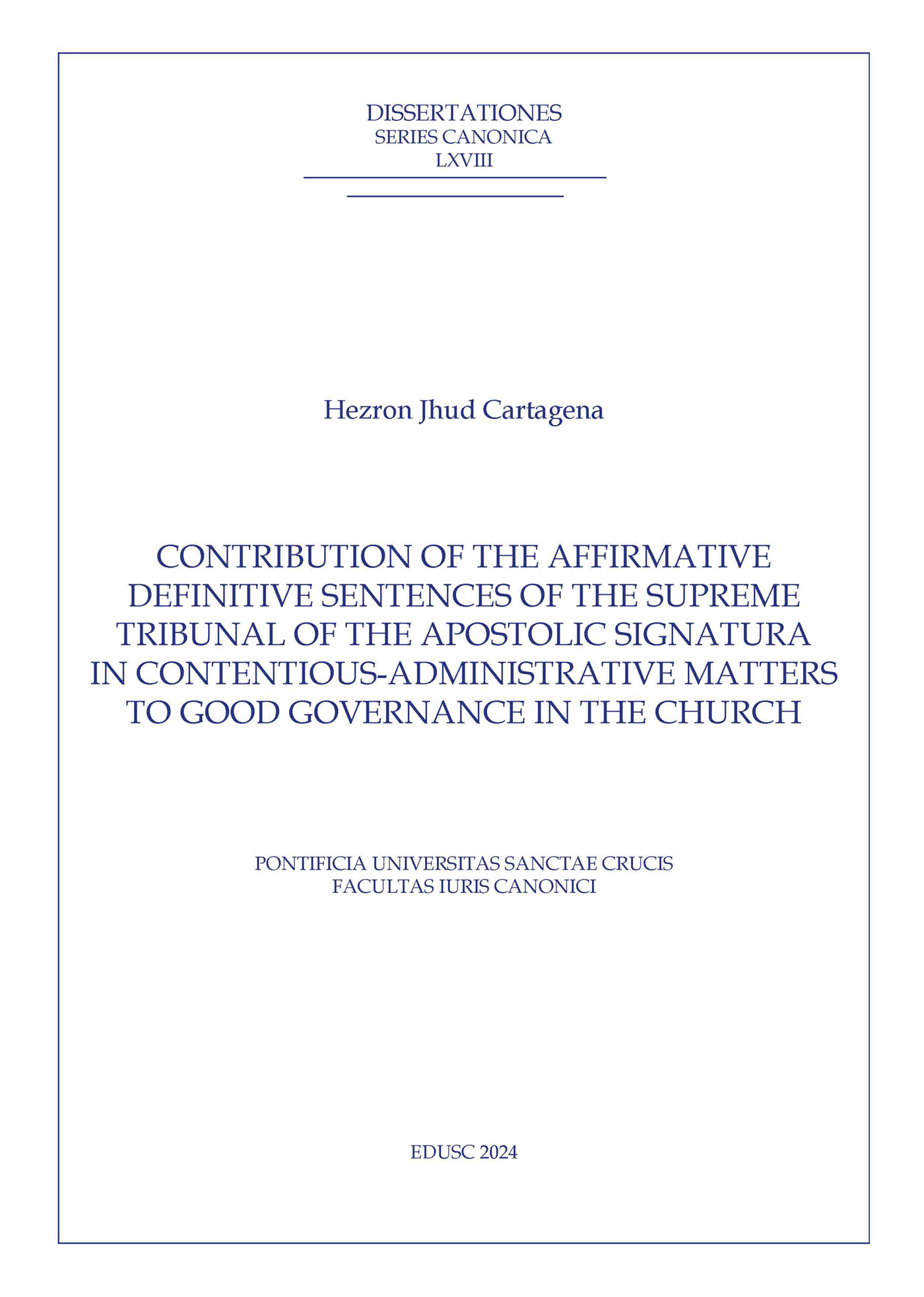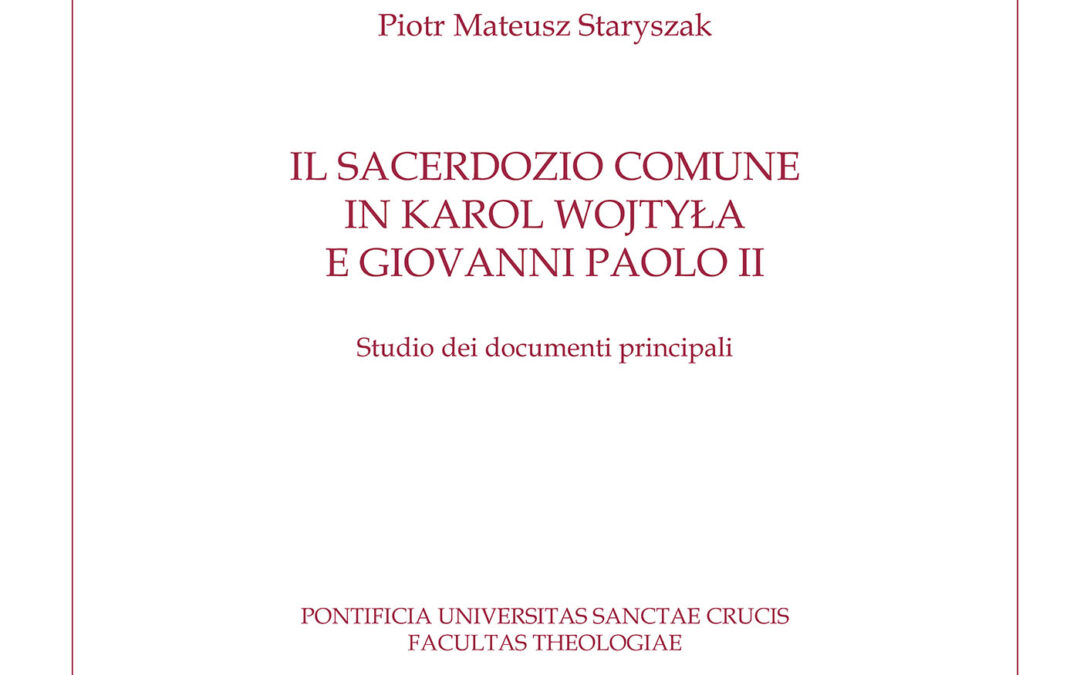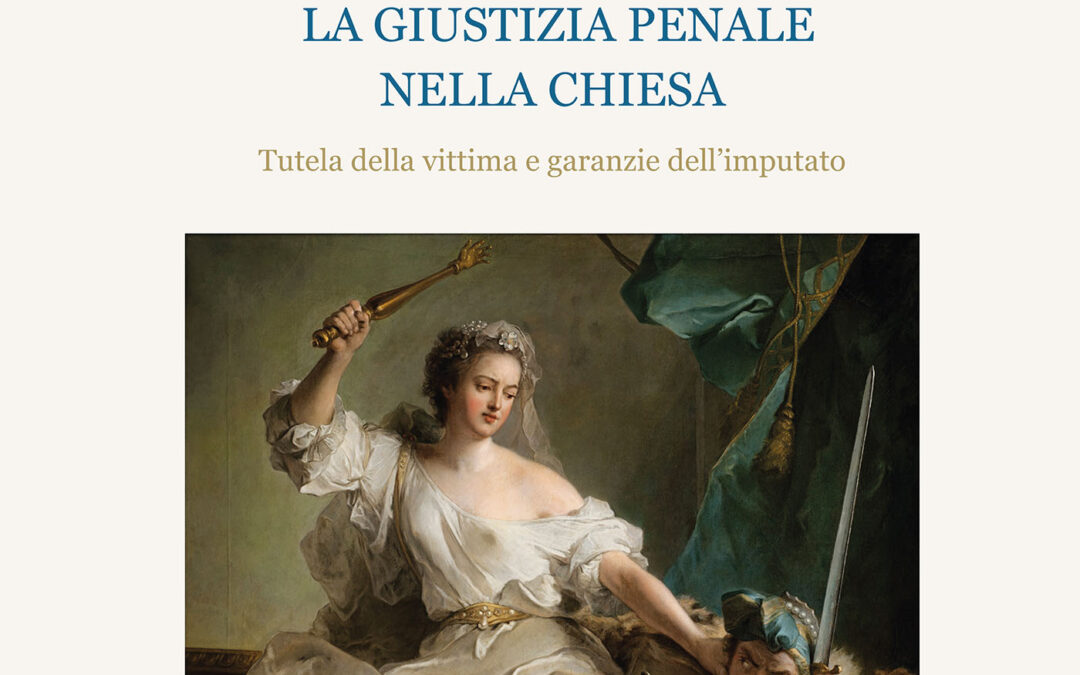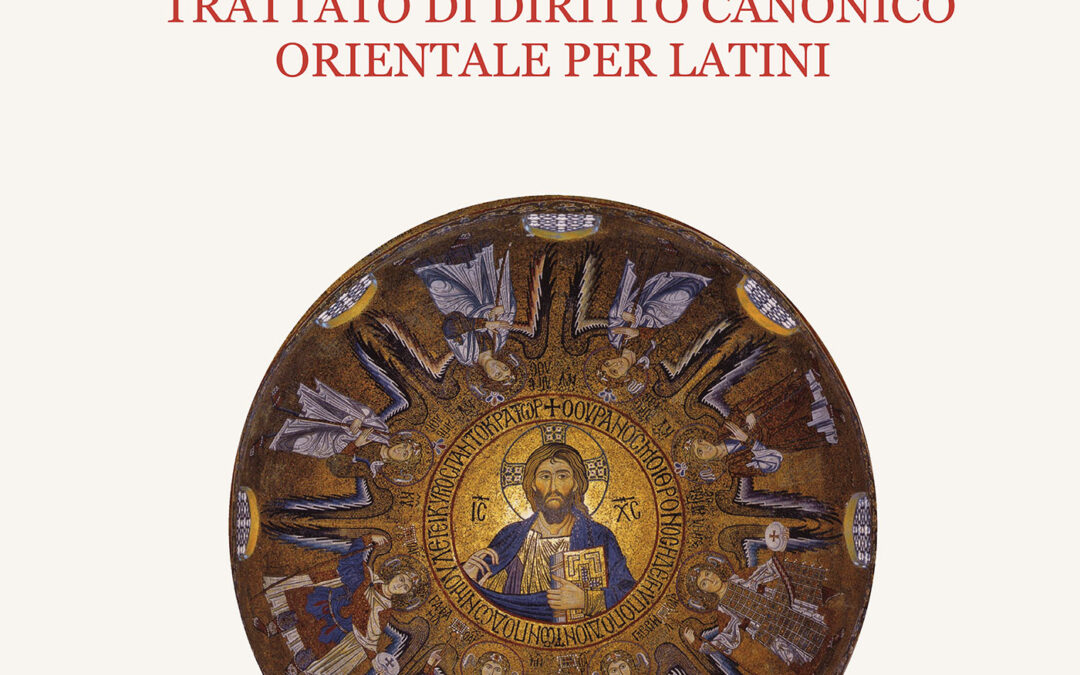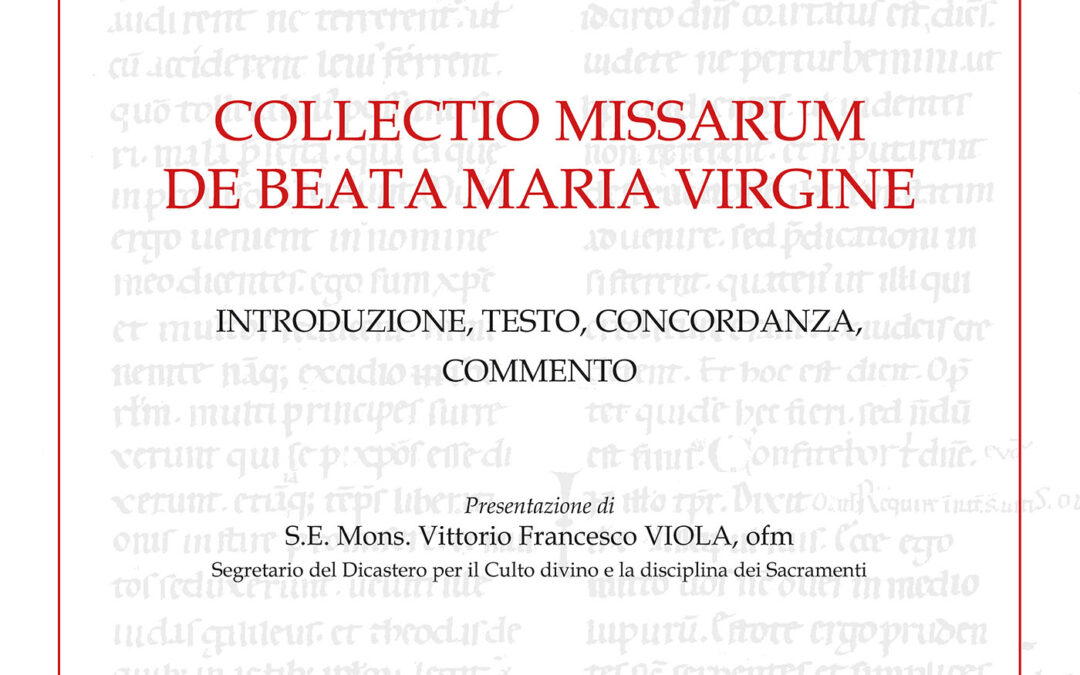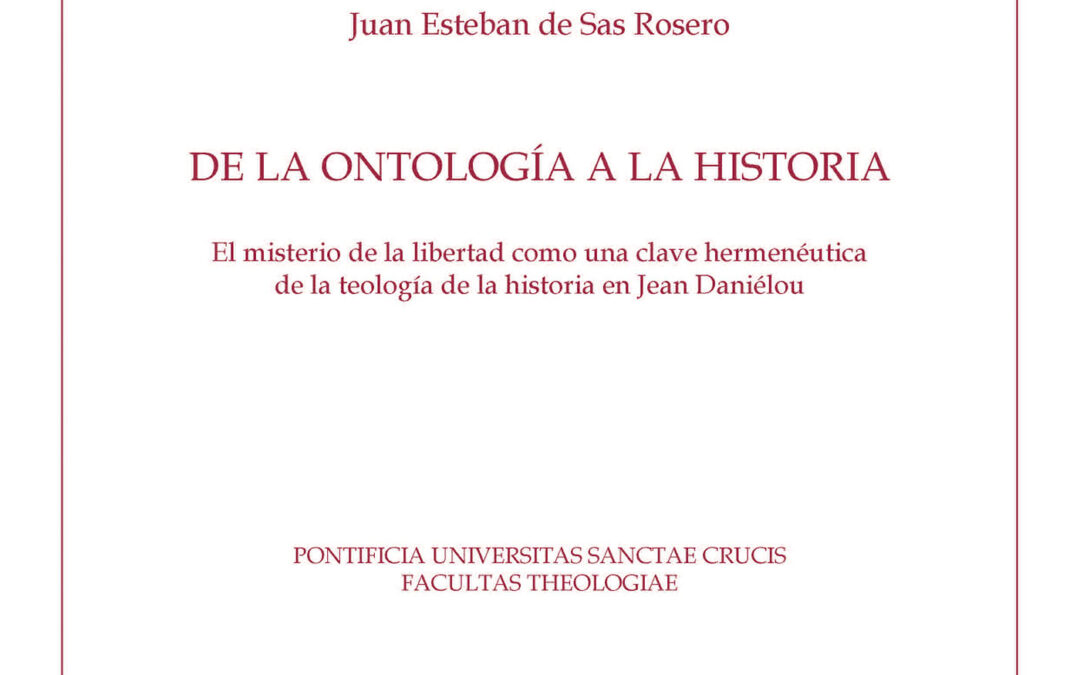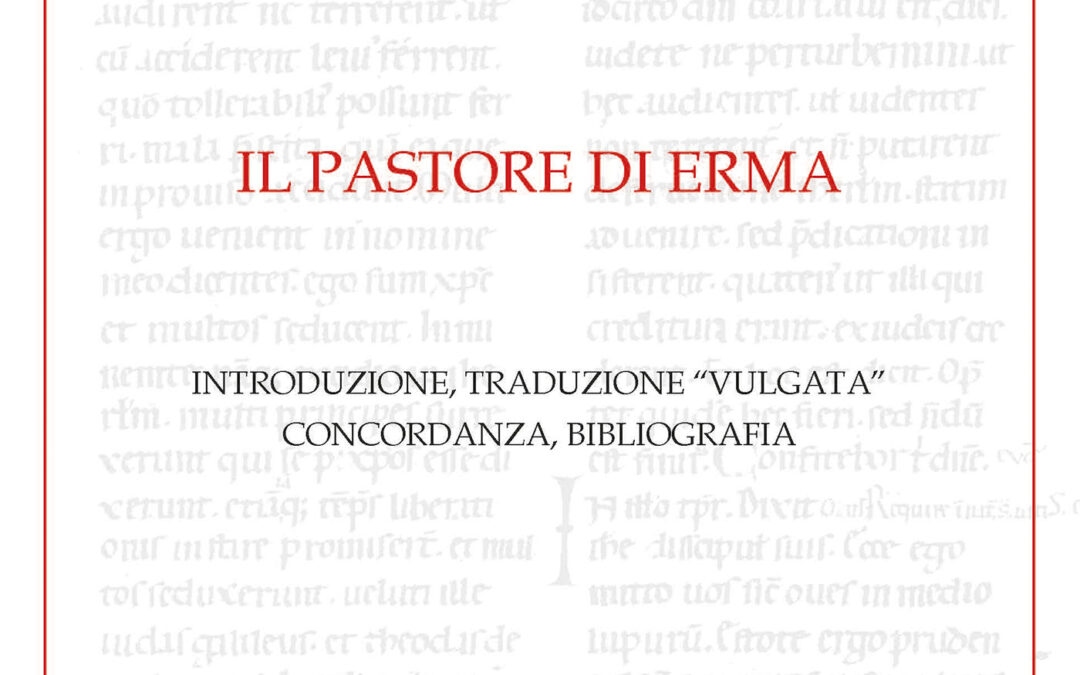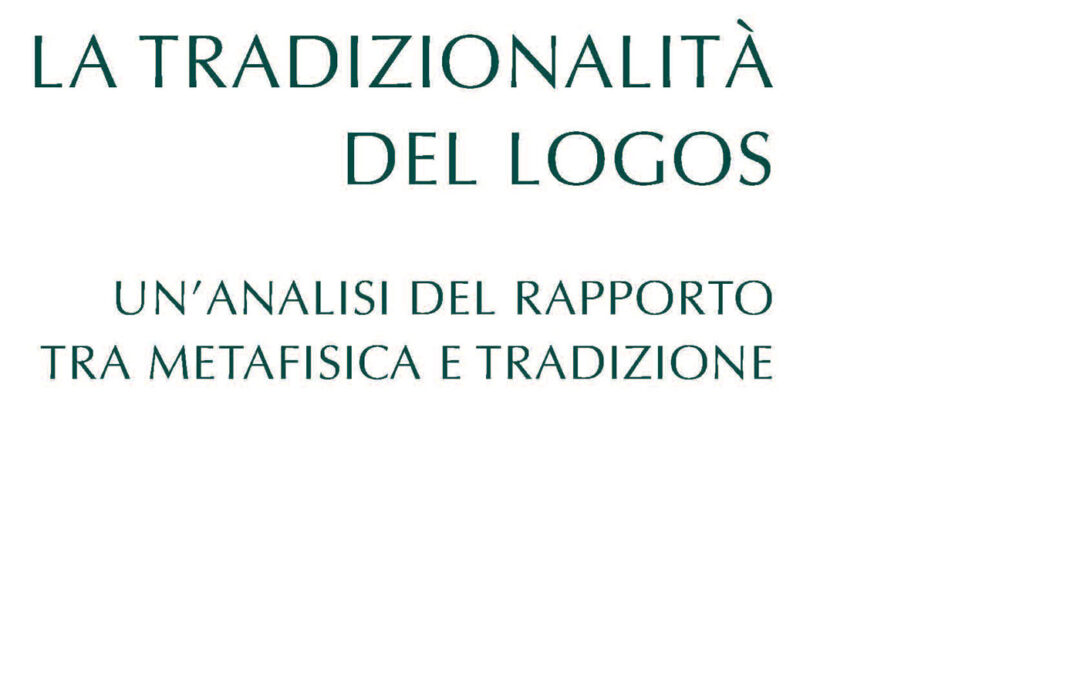This study began as an attempt to investigate how the activity of the administrative justice system of the Church (and in particular, the contentious-administrative cases, as shown in the jurisprudence of affirmative sentences) may have contributed—and how it may continue to contribute—to the realization of good governance in the Church.
The initial chapters of the work seek to establish the premise of the research and the basic concepts necessary to analyze the jurisprudence of the Supreme Tribunal of the Apostolic Signatura, the only ecclesiastical administrative tribunal. These include: the importance and propitiation of good governance in the Church (inside the framework of ecclesiastical rights and duties); the use of legal and juridical instruments to guarantee good governance (among which is the administrative justice system); and the concept of jurisprudence. Moreover, this part also tries to explain why this research—which attempts to examine the relationship between administrative justice and good governance—limits itself to study only a specific aspect of the activity of the Apostolic Signatura, which are published affirmative sentences.
After having addressed these preliminary questions, what follows is a review of the 44 affirmative sentences published so far (at least, until the moment in which this research was concluded), supplementing the analysis made by including the comments made by different scholars which have studied the sentences.
The preceding analysis provides a panorama of the various controversies, and also allows the pinpointing of some elements of interest that may help identify: the most recurring problems in the area of ecclesiastical administration; how the system of administrative justice has effectively safeguarded good governance; and how this system could further contribute to the good governance of the Church.
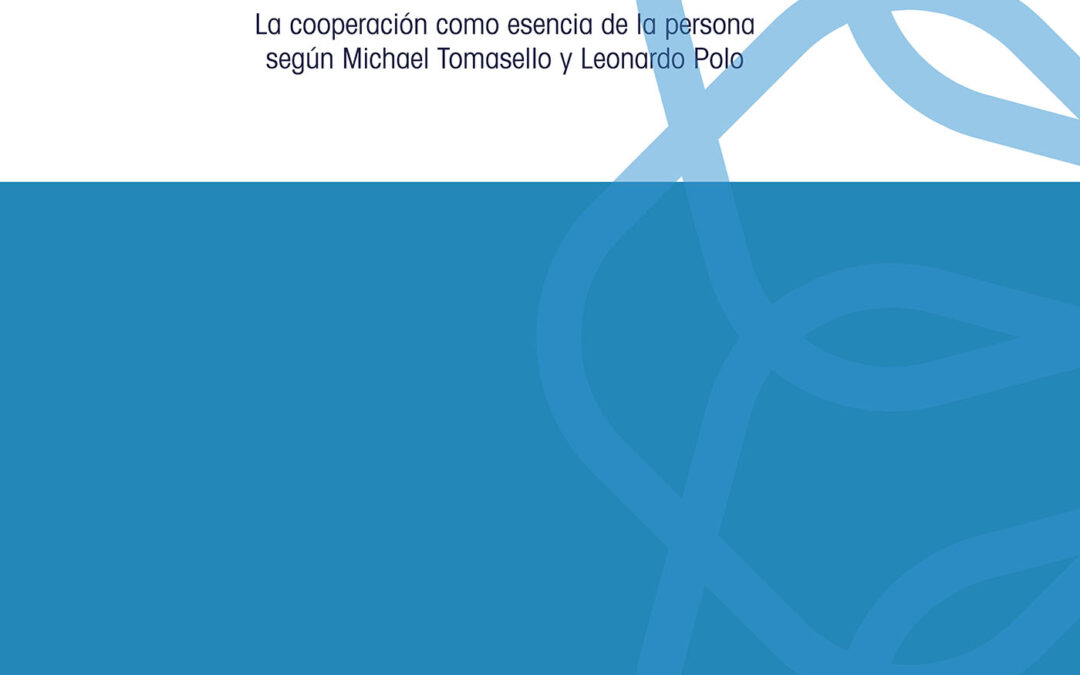
Cooperari sequitur co-esse
En su Curso de psicología general (L.P. XXI), Leonardo Polo dice: "Si de algo nos ocupamos los filósofos es de lo que se podría llamar lo obvio: y si algún interés, o alguna importancia, puede tener la actuación de un filósofo para las personas que no...

